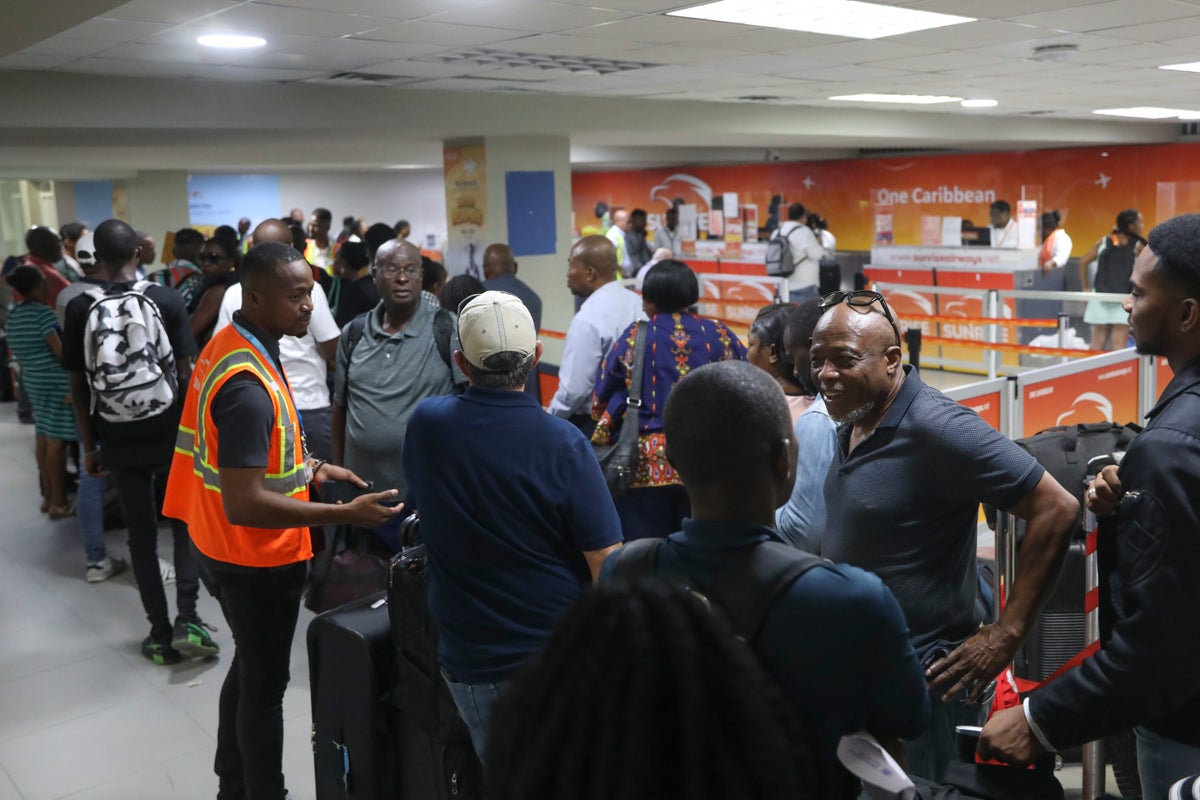
Haiti’s main international airport reopened Monday for the first time in nearly three months after relentless gang violence forced authorities to close it to all traffic in early March.
The reopening of the Toussaint-Louverture airport in the capital of Port-au-Prince is expected to help ease a critical shortage of medications and other basic supplies since the country’s main seaport remains paralyzed.
However, only Sunrise Airways, a local carrier, is flying in and out of Port-au-Prince for now. US-based airlines are not expected to start doing so until late May or early June.
The first flight expected was one from Sunrise Airways bound for Miami and scheduled to depart at 2:30 pm EDT.
Before Monday’s reopening, the sole airport operating in Haiti was the one located in the north coastal city of Cap-Haitien. However, it was out of reach for many seeking to flee the country since the roads leading from Port-au-Prince to Cap-Haitien are controlled by gangs that have opened fire on cars and buses passing through.
As a result, the U.S. government evacuated hundreds of its citizens by helicopter out of a hilly neighborhood in Port-au-Prince, as did nonprofit organizations, as powerful gangs laid siege to parts of the capital.
The attacks began on Feb. 29, with gunmen seizing control of police stations, opening fire on the Port-au-Prince airport and storming Haiti’s two biggest prisons, freeing more than 4,000 inmates.
Gangs since then have directed their attacks on previously peaceful communities, leaving thousands homeless.
More than 2,500 people have been killed or injured in Haiti from January to March, a more than 50% increase compared to the same period last year, according to the United Nations.
The attack on the airport left former Prime Minister Ariel Henry locked out of Haiti since he was on an official trip to Kenya at the time. He has since resigned, and a transitional presidential council is seeking a new prime minister for Haiti. It is also tasked with selecting a new Cabinet and organizing general elections.
In recent weeks, U.S. military planes have landed at the Port-au-Prince airport with supplies, including medication and hydration fluids as well as civilian contractors to help Haiti prepare for the arrival of foreign forces expected to help quell violence unleashed by gangs that control 80% of the capital.
On Sunday, Korir Sing’oei, Kenya’s foreign affairs principal secretary, said a plan to deploy police officers from the East African country was in its final stages.
“I can tell you for sure that that deployment will happen in the next few days, few weeks,” he said.
Sing’oei added that “there is no chance at all” Kenyan President William Ruto will visit Haiti.
Ruto was scheduled to depart Kenya on Sunday for an official four-day visit to the U.S., where he is expected to meet President Joe Biden.
In March, Kenya and Haiti signed agreements to try to salvage a plan for the African country to deploy 1,000 police officers to the troubled Caribbean nation to help the violence.
Other countries expected to back up the Kenyan forces include the Bahamas, Barbados, Benin, Chad and Bangladesh. It wasn’t immediately clear when those forces would arrive.







